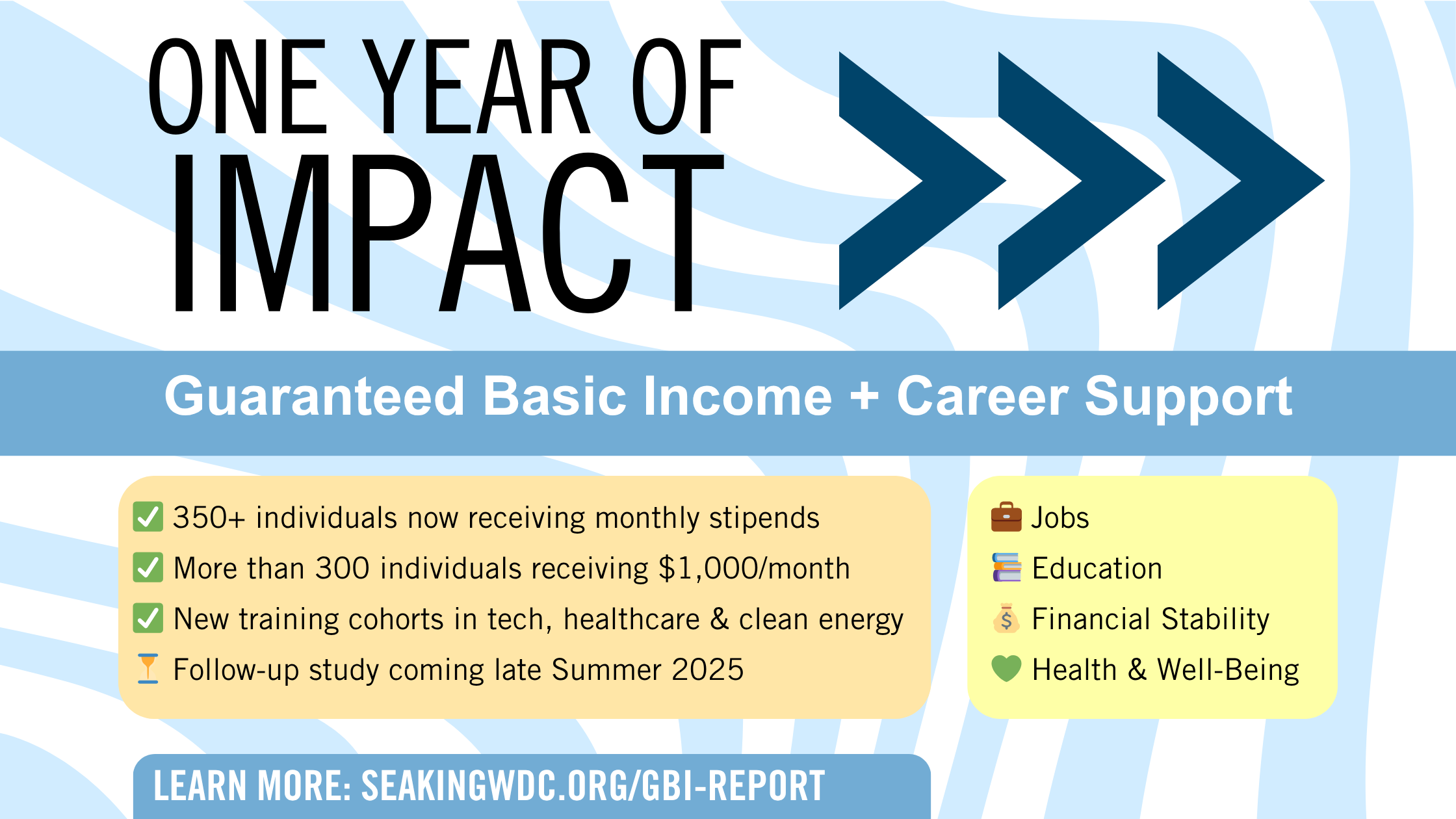GBI + Career Support: One Year of Impact
How Flexible Financial Support Is Opening Doors to Economic Mobility
In March 2024, the Workforce Development Council of Seattle-King County (WDC) released the results of a Guaranteed Basic Income (GBI) pilot program—an effort that combined flexible monthly financial stipends with career development services to support economic mobility.
The results showed real, measurable impact:
Employment increased from 37% to 66%
Savings among families with children jumped from 0% to 42%
Participants reported reduced financial stress, improved health, and stronger pathways to education and career advancement
More than a year later, the work continues—but its future is uncertain, especially in light of recent state-level budget cuts affecting key programs like Economic Security for All (EcSA).
Expanding Access to Opportunity
Today, over 350 individuals are actively receiving financial stipends through expanded initiatives, including:
More than 300 individuals receiving $1,000/month
A new group of participants receiving $500/month
An additional 50+ individuals enrolled since the start of 2025
These investments continue to bridge the critical gap between survival wages and self-sufficiency, empowering individuals to build lasting, thriving careers. However, sustaining this level of impact will require ongoing funding and policy support at the local and state levels.
New Cohorts, New Pathways
The success of the original GBI pilot paved the way for broader efforts across high-demand industries, including:
IT and Healthcare: In partnership with North Seattle College, supporting underrepresented students to complete their degrees.
Clean Energy: Through the JumpStart program, preparing young adults for careers in solar installation, HVAC, and residential decarbonization.
Technology Leadership: Via the MLK Gandhi Empowerment Initiative, equipping Black and African American participants—mostly women—for leadership roles in tech.
Cybersecurity: Through FOUR18 Intelligence, delivering live-fire cyber defense training to a diverse new generation of cybersecurity professionals.
Healthcare Careers: With the RN Pre-Requisites Cohort, supporting TANF recipients to complete nursing coursework and move toward self-sufficiency.
Each of these programs leverages flexible financial support, personalized career advising, and strong partnerships to remove barriers and create pathways to family-sustaining employment. Continued investment will be crucial to sustain and scale these promising models.
In the coming weeks and months, we’ll be sharing more details and stories about each of these cohorts—while also assessing how future funding may shape what’s possible.
Looking Ahead: Follow-Up Research and Deeper Impact
Later this summer, we look forward to sharing a follow-up evaluation conducted by Applied Inference that will offer new insights into the long-term outcomes of the original GBI pilot participants.
This expanded analysis will incorporate new research techniques, including synthetic control group comparisons, to better understand the full impact of flexible financial incentives paired with strategic workforce support.
As we reflect on what’s been accomplished and what lies ahead, we remain committed to:
Centering racial equity
Innovating workforce strategies
Amplifying community voice and lived experience
Together, we are working toward a future where economic mobility is not just a possibility—it’s a reality for everyone in our region. But that future depends on sustained resources and shared commitment.
Thank you to all our partners, participants, funders, and community champions who make this work possible.



